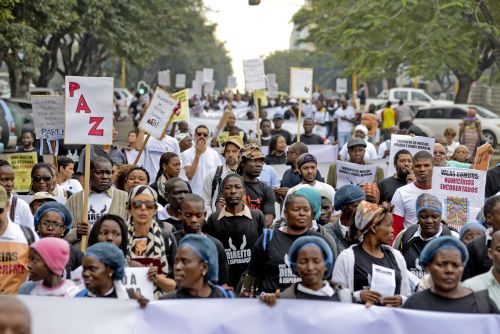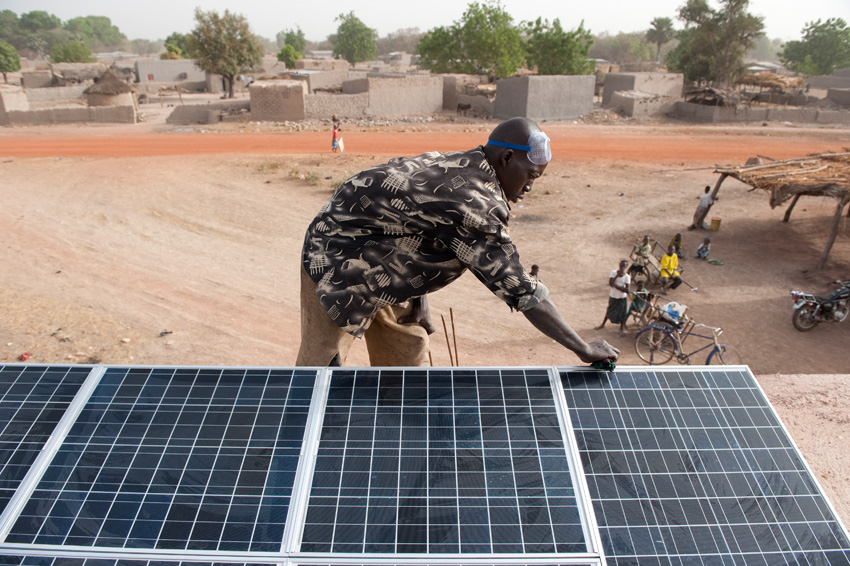Annual Meeting
Climate change at World Bank
The World Bank is going to sharpen its focus on the provision of regional and global public goods such as climate protection. This was one of the messages contained in a speech by its new president a few days before the World Bank/IMF annual meeting. Marking his first 100 days in office, Zoellick publicly outlined his ideas for the Bank’s future for the first time. His vision is “to contribute to an inclusive and sustainable globalisation”, helping all those currently excluded – for instance, indigenous peoples, women, the rural poor and children – to benefit from globalisation. Inclusive globalisation, he said, was also in the interest of rich countries, because “poverty breeds instability, disease and devastation of common resources”.
Zoellick identified six issues that would shape the future work of the World Bank:
– poverty reduction in the poorest countries, especially in Africa,
– help for fragile states,
– differentiated support for middle-income countries,
– promotion of regional and global public goods such as climate protection and the control of AIDS and malaria,
– support for progressive policies in the Arab world and
– development of the World Bank as a knowledge broker.
The World Bank/IMF Joint Development Committee welcomed Zoellick’s proposals and his willingness to develop and refine the strategic framework of the Bank’s operations “in a consultative manner under the guidance of the Bank Board”. Zoellick’s predecessor Paul Wolfowitz was repeatedly criticised within the Bank for his high-handed style of management. The Development Committee stresses that the World Bank needs to respond to global challenges, while cooperating closely with other institutions and focusing on tasks where it has a comparative advantage. In its final communiqué, the Committee calls upon the management to develop a plan for tackling climate change and supporting developing countries’ efforts to adapt to such change and achieve low-carbon growth while reducing poverty.
Meanwhile, at the International Monetary Fund, discussion continued about the reform of subscriptions and voting rights within the organisation – with no appreciable success, according to media reports. Germany’s Finance Minister Peer Steinbrück reportedly said that the debate has gone practically full circle. The communiqué put out by the IMF's International Monetary and Financial Committee (IMFC) contains a recommendation that quotas and the voting rights they confer should be increased by a total of 10 % in two rounds of reform. However, there is no agreement on how the quota increase should be distributed. The aim of the reform is to give a greater voice to poorer IMF members, especially emerging economies like China, India or South Africa. Developing countries argue that the basis on which quotas are calculated – gross domestic product (GDP) – should be weighted by purchasing power parity. That would increase the developing countries’ quota share significantly. The industrialised nations, however, insist that quotas should continue to be calculated on the basis of nominal GDP. If the status quo is maintained, says independent commentator and Internet blogger Rainer Falk, a 10 % quota increase would give the developing countries as a whole only two percent more voting rights.
Another bone of contention is the margin by which basic votes should be increased. Basic votes are allocated to all countries, regardless of economic clout, so they are particularly important to the poorest. The IMFC asserts in its communiqué that it favours “at least” a doubling of basic votes. But the developing countries want a three-fold increase. By the 2008 spring meeting of the World Bank and IMF, the IMFC wants the Executive Board to sort out all unresolved issues. (ell)










